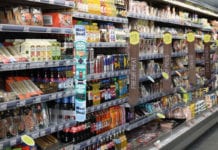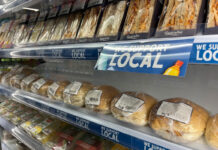by Michael Dean and Malcolm Gunnyeon
While Brexit uncertainty is the new normal, it flexes and varies week to week. Soon we will be straining to learn the progress of negotiations with the EU and what that will mean for various sectors. So what are the potential ramifications for retail and grocery?

The briefest of bills has survived the Commons without amendment and one now wonders what the point of Parliament’s role was – it is now before the House of Lords and woe betide that unelected institution, if it did its job of scrutiny, as to do so might thwart “the will of the people”, whatever that is. The Scottish Government’s play for some form of special access to or retention of membership of the single market has been brushed aside. Any specific Scotland issues will be subject to UK priorities. And meanwhile (surprise, surprise), support for a new Scottish referendum is growing according to polls, while business gets on with business and many issues that have nothing to do with Brexit, such as guidance on price promotions and Grocery Code.
A period of uncertainty
Whether we ultimately see a second referendum or not, it is clear that Scottish businesses are now staring down the double barrel of a period of uncertainty – with Brexit and independence both on the table and neither entirely certain. The retail and grocery sector will be affected. Indeed already the Sterling currency depreciation has been a winner for exporters with some potential price rises on the way for imports.
An end to free movement?
The issue of free movement of workers, and the continued availability of a large pool of relatively cheap labour that the European Union has provided in recent years, is perhaps the most obvious problem which may become manifest first, as they choose not to come, partly due to the less welcoming environment and less certain prospects but also due to hard brass – a pound earned in the UK is less valuable now than it was to send back. Workers from across the EU are embedded in the UK retail sector in various roles, and while they make up just 4% of the sector’s workforce, the grocery supply chain is much more dependent as more than 60,000 seasonal workers are recruited from EU countries each year to assist with harvests. The trucking industry in the UK is dependent on drivers from many EU countries and this is likely to grow as the age profile of UK truckers increases. The wider issue of labour availability may also have a knock-on effect on wages and, therefore, costs across all sectors.
Fuel to the Indyref2 fire
Another issue is trade and whether withdrawal from the single market will create more bureaucracy for importers and exporters, remove protection for geographical names and after packaging and other standards. Holyrood’s push for Single Market membership will present a challenge to this, and negotiations look set to be long and tough. Scotland’s economic sectors have their own particular patterns of need for migrant labour. The plea for Scotland to have control over its migration policy has been rejected. That will be fuel to the Indyref2 fire. The matter of Scottish independence, of course, could make these uncertainties look minor.
[box style=”0″]
Do you have a business, property or legal question or issue that you would like to know more about? Call Scottish Grocer and we’ll put it to an expert.
Contact John McNee 0141 567 6032 or john.mcnee@peeblesmedia.com
[/box]

















